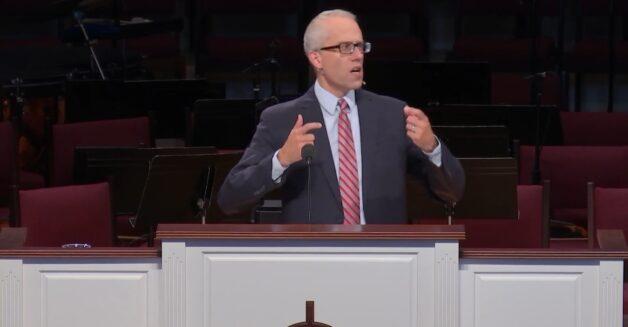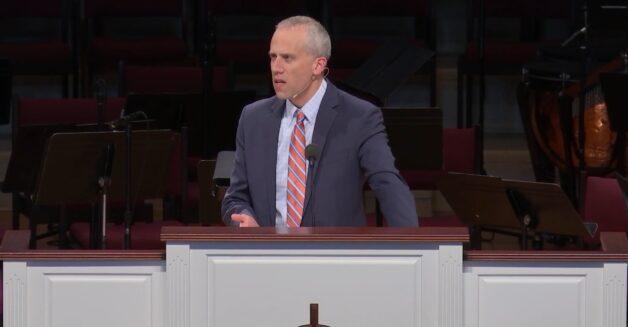Good Works vs. Obedience
There’s a really important but simple distinction we need to make in thinking about our good works or our obedience. And that is that our good works can be truly good even though they’re not perfectly good. They’re never without some imperfections. They’re always tinged with some kind of selfishness.
I remember a pastoral intern asking me years ago, “Pastor Kevin, how do you know that when you’re stepping up into the pulpit there’s not some part of you that’s doing this to be seen and to be heard or to draw attention to yourself?”
And I said, “That’s a really good question. I’ll let you know when I’m certain there’s no part of that in my heart.”
It’s not to excuse sin, but it’s to say, Yeah, there are layers to the onion of the human heart. So there’s always that presence of indwelling sin. It’s imperfect, and yet the best theologians have said that it can be truly obedient. I think that’s a new concept for some people, though it shouldn’t be, because Paul often praises the churches for their obedience. Jesus, in the Great Commission, said, “Teach them to obey everything I have commanded you.” And there’s no escape hatch that says, Oh, by the way, of course, you can’t really be obedient to anything.
So we must have a category of Jesus that doesn’t mean you’ll never be tempted or you’ll never have imperfect motives, but you can live a life of ordinary faithful obedience. One of the problems when we don’t have that category is when we think, You know what? I never really obey. Everything in my life is just polluted, sinful, filthy rags. That is when we need to hear the alarm bells going off. We don’t hear it like we should.
There are real serious warnings in Scripture where Paul will list off certain types of sins and say that if you’re marked by these, you don’t inherit the kingdom of heaven. Idolaters, the sexually immoral—they don’t inherit the kingdom of heaven.
When we don’t have the category of obedience or holiness as a real possibility, it actually can be very detrimental to the preaching of the gospel.
Well, if we’re so trained to say, Well, yeah, I’m guilty of that sin, that sin, that sin, and really every sin, then when we need to speak very strongly—either to others or ourselves—a rebuke and warning, then we figure, Nobody’s perfect. Nobody really obeys. Therefore, we don’t feel the warning that we should feel. There’s no way to understand the pastoral epistles unless you realize Paul has a category for Christians who are living a faithful, obedient life, and a category for those who are not repentant, in whom there’s no progress.
They’re so marked intractably by these sins without fighting, without struggle, giving themselves over to them that the only conclusion one can reach is, I don’t think you’re really Christians. I don’t think you’re really born again. And the path that you’re on does not lead to eternal life.
And so when we don’t have the category of obedience or holiness as a real possibility, it actually can be very detrimental to the preaching of the gospel. Though it sounds like just being helpfully humble, it actually, in a very dangerous way, can lead people to not hear the alarm bells that they need to hear and to not be concerned when their lives genuinely are marked by consistent perpetual disobedience—the kind that Hebrews 12:14 says that without holiness you won’t see the Lord.
Kevin DeYoung is the author of Impossible Christianity: Why Following Jesus Does Not Mean You Have to Change the World, Be an Expert in Everything, Accept Spiritual Failure, and Feel Miserable Pretty Much All the Time.



